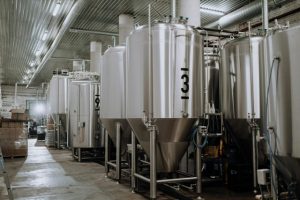UK growth slows post-Brexit – but figures better than expected

THE economy grew by 0.5% last quarter, showing better than expected growth following the Brexit vote in June but a slowdown on last quarter.
Analysts had predicted a much lower rate of 0.3%, as there was an expectation that the economy had been affected by the surprise Leave vote at the end of June. It is much higher than the very gloomy predictions of 0.1% in the immediate aftermath of the referendum.
GDP was 2.3% higher in Q3 2016 compared with the same quarter a year ago, but the figures show a slowdown on the Q2 2016 in which the economy grew by 0.7%.
In its announcement today, the Office for National Statistics said: “The pattern of growth continues to be broadly unaffected following the EU Referendum with a strong performance in the services industries offsetting falls in other industrial groups.”
It is the last set of GDP data before next month’s Autumn Statement, the first for new Chancellor Philip Hammond.
Scott Knowles, chief executive at East Midlands Chamber said: “With so many conflicting sectoral reports since the EU referendum it was always going to be very hard to call what the impact of the Brexit vote would be on GDP.
“It is very encouraging to see from the figures that the economy is continuing to grow and that it hasn’t been significantly affected by the referendum.
“Service industries, which had reported declines since the referendum, actually drove growth in quarter three, achieving 0.8%, while construction, production and manufacturing all showed small decreases.
“But while we remain a long way ahead of the recession predicted by some in the build-up to the referendum, it is imperative that the Government makes boosting business confidence a priority in the months ahead, and the imminent Autumn Statement provides an ideal opportunity to do it.
“The Government has given business some clarity on its timetable for invoking Article 50 and on short-term regulatory and legal issues, which is helpful, but this needs to be followed up with a clear demonstration that there is an exit strategy and that business, the driver of the national economy, will be included in helping to shape a great future for post-EU Britain.”








